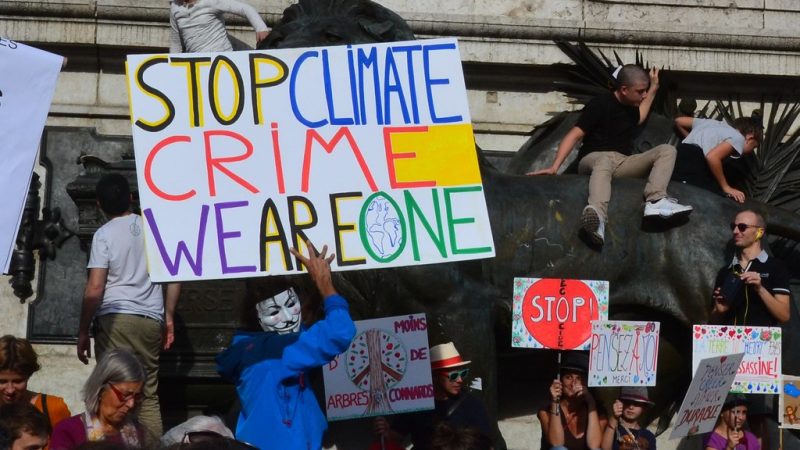Climate change will not wait for us to act. Every week, month and year we delay the ambitious and unavoidable action we need to take to prevent runaway climate breakdown, the harder it becomes to achieve.

Mike Buckley is the director of the Independent Commission on UK-EU Relations and a former Labour Party adviser
Climate change will not wait for us to act. Every week, month and year we delay the ambitious and unavoidable action we need to take to prevent runaway climate breakdown, the harder it becomes to achieve.
Last year’s COP, hosted by the UK, was premised on the 2020s being the decisive decade. By 2030, we were told, the world needs to have cut emissions by 43%. To have a chance of keeping rising temperatures below 1.5 degrees above pre-industrial averages, most of these cuts would need to come early in the decade. We can’t wait until 2028 or 2029 to act. Our last chance is now.
On that metric both the last year and COP27 can only be viewed as failures. COP26 ended on a note of qualified optimism, with a commitment to at least reduce the use of coal appearing in a COP text for the first time and then-COP President Alok Sharma declaring that the conference had ‘kept 1.5 alive’. Delegates left Glasgow believing there was cause for genuine hope.
But a year on global carbon dioxide emissions from human activities remain at record highs and fossil fuel emissions have risen above pre-pandemic levels.
This year the world is projected to emit 40.6 billion tonnes of CO₂, leaving 380 billion tonnes of CO₂ as the remaining carbon budget if we are to have chance of staying within the 1.5 degree limit.
Over 40 billion tonnes of emissions in a single year is disastrous for the climate – at these levels there is a 50% chance the planet will reach the 1.5℃ global average temperature rise in just nine years.
Far from falling, emissions are in fact still rising – by 1% (or around 300 million metric tonnes) this year if projections are accurate. This is above the 0.5% yearly growth of the last decade and the diametric opposite of the reductions needed to have a hope of achieving the reductions scientists say are needed by 2030 and global net zero by 2050.
The reasons for growing emissions –in part the recovering aviation industry post-pandemic and higher coal use in response to higher natural gas prices and shortages in natural gas supply due to the war in Ukraine – do nothing to minimise or excuse their existence and impact.
Efforts to include stronger language on phasing out oil and natural gas as well as coal were rebuffed by top fossil fuel producers and by major emitters in the developing world who still refuse to jeopardise their economic growth to embrace renewables, despite the huge risks to their own and all our futures.
The conference’s sole success is a ‘loss and damage’ fund that if implemented would enable wealthy countries to compensate the developing world for impacts like droughts and flooding.
In theory this is a major step forward, given that rich countries have for the first time admitted their responsibility to pay for climate damage in poorer nations. In reality it is little more than a political statement of intentions with no financial commitment, leaving future COPs to work out the details.
The result was a COP that must be seen as a wasted opportunity. Emissions reductions commitments are all but unchanged from COP26, despite that conference having ended with then-COP President Alok Sharma challenging countries to arrive in Egypt with significantly more ambitious pledges. The last year and this year’s conference have been wasted, when ambition has never been more critical.
Some countries have responded by pledging to do more to reduce their own emissions, both to contribute to efforts to stay within 1.5 degrees above pre-industrial averages, and to challenge others to follow their lead.
The EU, for example, which had pledged 55% emissions reduction by 2030 increased this to 57% in Egypt. The European Environmental Bureau and others are 65% cuts in line with the research.
The Just Energy Transition Partnership deal struck by the EU and partners with Indonesia at the G20 summit in Bali, in parallel to COP27, will provide funding of $20 billion for concrete coal-exit plans. It is the second such deal, after one with South Africa.
Such bilateral deals, put in place outside the UN system, allow the EU and partners to take action immediately. They also help move beyond the idea that a right to development includes a right to pollute: they ensure countries have the opportunity to develop without polluting.
But while such deals are welcome and essential they cannot replace the need for action at a global level involving all major producers. China, the world’s largest emitter, must recognise its responsibility not only to reduce emissions but also to help poorer countries adapt and invest in renewable energy. Other large emitters including the US, EU, UK, Australia and wealthy Arab states must also do more.
Egypt retains the COP presidency for the next 12 months. We must hope that they do more with the remainder of their presidency than they did the conference itself. We must hope too that the United Arab Emirates, the host of COP28 and next COP president, outperform expectations both in their own emissions commitments and their use of the presidency.
We are long past the time for talking. The next decade has to be one of action. On current evidence we are not even close to doing enough.
Left Foot Forward doesn't have the backing of big business or billionaires. We rely on the kind and generous support of ordinary people like you.
You can support hard-hitting journalism that holds the right to account, provides a forum for debate among progressives, and covers the stories the rest of the media ignore. Donate today.



